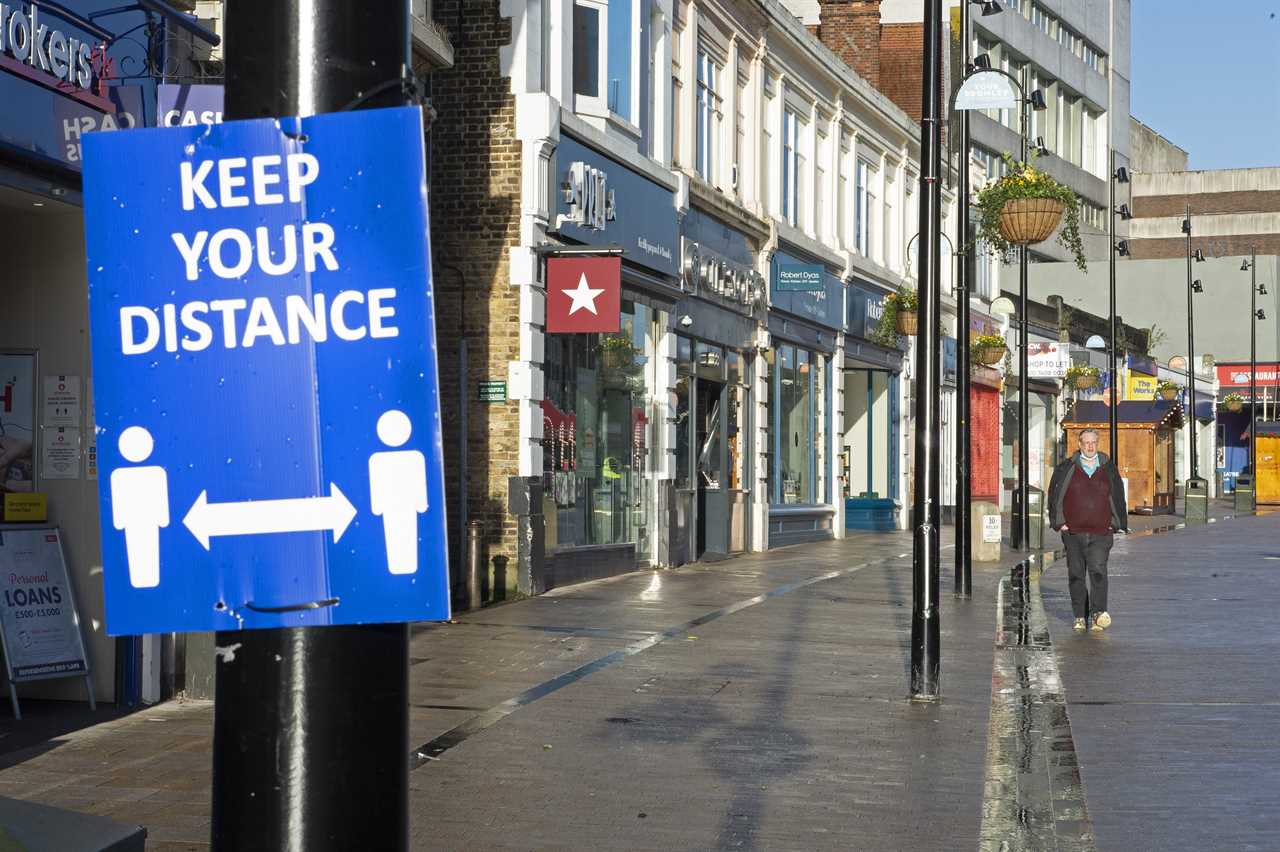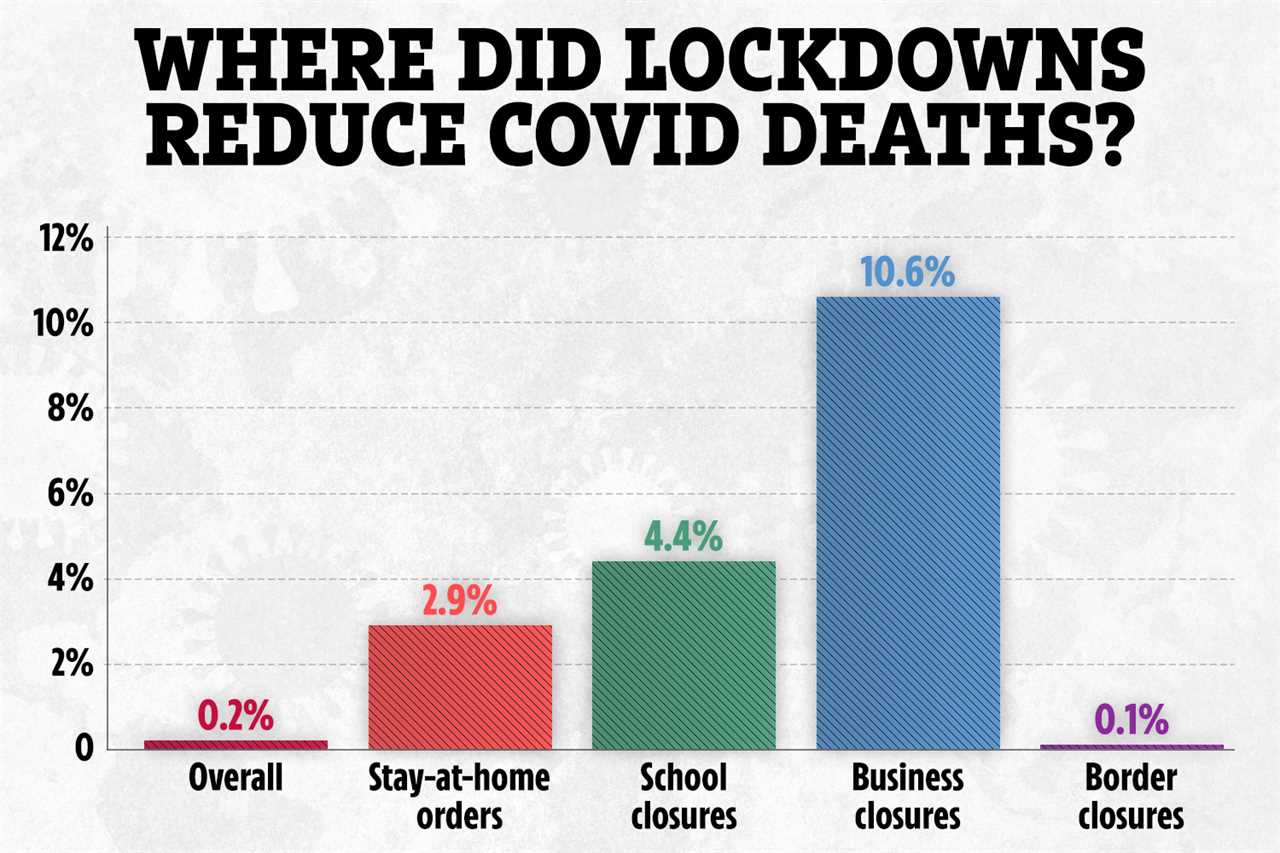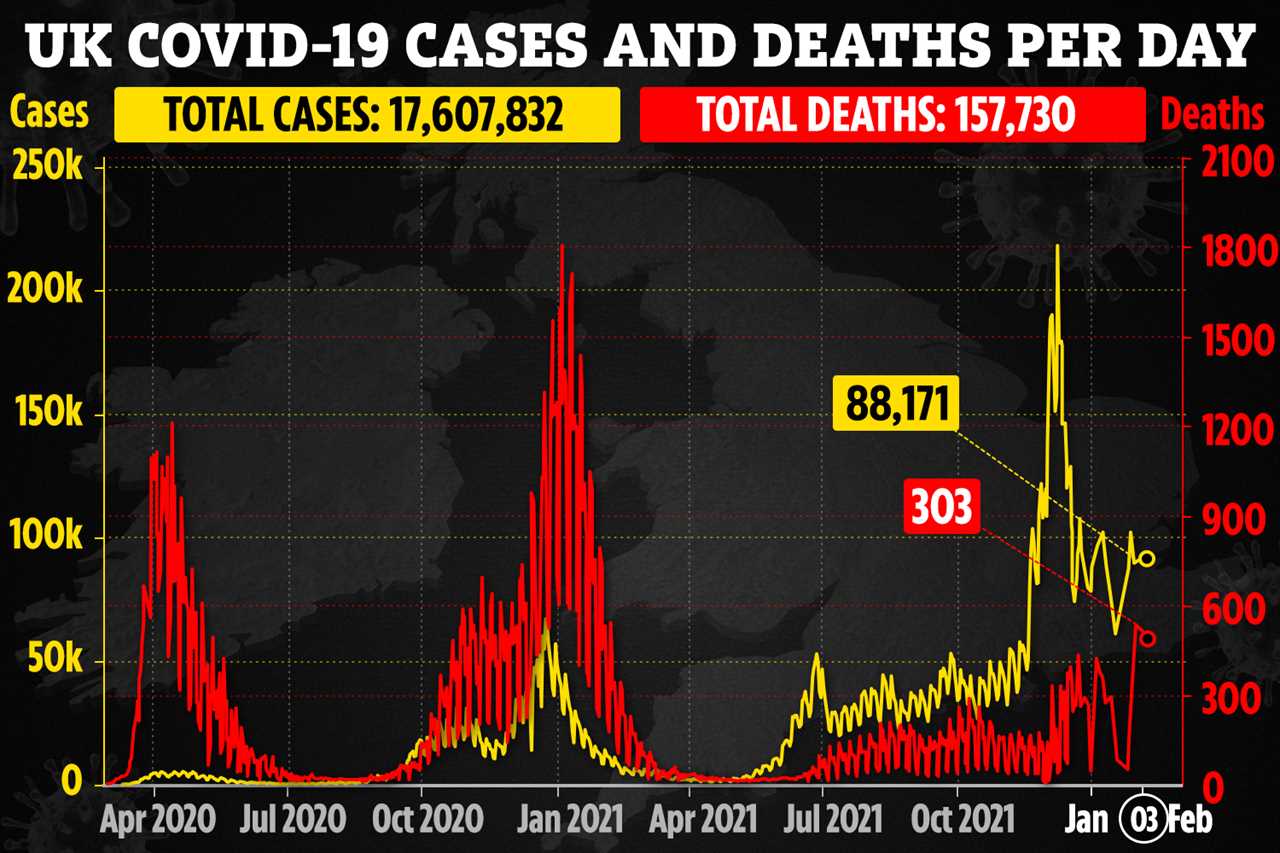COVID lockdowns and school closures at the start of the pandemic in March 2020 had little impact on deaths caused by the virus, a study has found.
The report suggests that closures such as pubs and shops shutting down had the biggest impact on the reduction of deaths.


It looks specifically at the US and Europe and found that business closures led to a 10.6 per cent drop in virus fatalities.
Led by economists at John Hopkins University, the data found that school closures led to a 4.4 per cent drop in death rates while stay at home orders resulted in a 2.9 per cent drop.
Overall the experts said this equated to a 0.2 per cent fall in death rates.
However scientists have warned that the data has not yet been peer reviewed and stressed that measures put in places across the world to prevent the spread of the virus did have an impact.
Dr Seth Flaxman, Associate Professor in the Department of Computer Science, University of Oxford said: “Smoking causes cancer, the earth is round, and ordering people to stay at home (the correct definition of lockdown) decreases disease transmission.
“None of this is controversial among scientists.
“A study purporting to prove the opposite is almost certain to be fundamentally flawed.”
Dr Flaxman said that the three economists who led the study, didn’t actually look at any key facts about disease transmission such as the fact that if lockdowns were put in place later on in the pandemic – then they wouldn’t be as effective.
In the report the experts suggest that lockdowns may have caused higher transmission in individual households – due to the fact that you were more likely to pass on the bug to family members.
The researchers looked at 18,590 studies on lockdowns and restrictions and their data is compiled of information from 117 reports.
They then looked at the studies that used ‘real-world data’ and narrowed them down to 34 papers.
TIMING IS KEY
The authors admitted that the data was limited as it did not look specifically at the role timing played when lockdowns were rolled out.
It’s also important to note that the majority of papers focused on the first lockdown – which was before any vaccines had been rolled out.
Vaccines have been proven to help protect people from Covid-19 and the highly transmissible – yet milder strain, Omicron.
Many of them would have also been penned before anti-virals were in use across hospitals – which have been proven to treat people who are at the highest risk of severe disease.
Dr Flaxman added: “It’s as if we wanted to know whether smoking causes cancer and so we asked a bunch of new smokers: did you have cancer the day before you started smoking? And what about the day after?
“If we did this, obviously we’d incorrectly conclude smoking is unrelated to cancer, but we’d be ignoring basic science.
“The science of diseases and their causes is complex, and it has a lot of surprises for us, but there are appropriate methods to study it, and inappropriate methods.
“This study intentionally excludes all studies rooted in epidemiology–the science of disease.”
CASES STABILISE
The release of the study comes as Covid cases in the UK stabilised today as deaths also dropped.
Yesterday cases plummeted by 21 per cent in a day, with 88,085 people recording a positive result, but deaths reached an 11-month high after the metric on the government dashboard was changed.
Deaths are down by 43 per cent today, with a further 303 deaths reported.
Cases have remained steady and experts say that high levels of vaccine uptake means that severe disease is unlikely for the majority.

Did you miss our previous article...
https://trendinginthenews.com/covid-19/valentines-day-flower-shortage-to-leave-customers-paying-more-make-sure-to-order-yours-in-time






